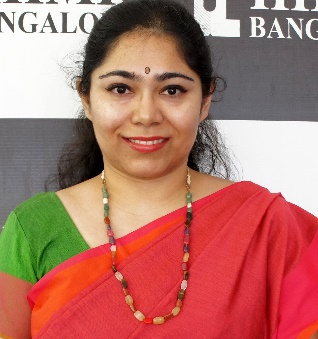The Indian G20 Presidency has achieved its place in history with the successful conclusion of the G20 Summit meeting in September 2023, bringing together leaders of the world to ratify the landmark Delhi Declaration. The Indian Presidency has spotlighted the most imminent challenges to our existence—climate change and anti-microbial resistance. The accelerating spread of anti-microbial resistance (AMR) threatens to derail decades of progress against infectious disease, and among the gravest AMR concerns is the resistance to anti-Tuberculosis drugs.
Tuberculosis is one of civilization’s oldest, yet most exigent perils. ‘Yes! We can end TB!’ The slogan and theme for this year’s World TB Day observed on 24th March, rings with positivity. This assurance is reflected in India’s journey from independence to its present renown as a beacon of global cooperation and leadership.
Despite our modern prowess in prevention and cure, tuberculosis continues to be a killer disease worldwide with 1.6 million TB deaths reported by the World Health Organization (WHO) in 2021.1 Since its inception in 1962, India’s national TB elimination program (NTEP) has extended its scope from the modest objective of controlling transmission, to its present goal of removing Tuberculosis entirely from the list of public health concerns. The National Strategic Plan 2020-2025 envisions a blueprint to achieve this ambitious milestone.2
The G20, or Group of Twenty, is an international forum formed in 1999, comprising nineteen countries plus the European Union. The G20 aims to facilitate trade and economic alliances between its members with the larger goal of mitigating climate change and financial inequity and achieving sustainable development for all nations. With two-thirds of the world’s people living in G20 territories, it represents three-fourths of global commerce transactions and more than four-fifths of the global GDP.3 With the inclusion of the African Union as a permanent member, the G20 will now encompass the sizeable majority of humankind.4
Countering the natural demographic advantage of such a union is the reality that G20 nations shoulder as much as half the global burden of TB.5 With Africa now included and accounting for as much as a quarter of the global TB mortality,6 the risk of TB hindering progress becomes even greater. The combined threats of climate change7 and drug resistance8¾both of which impact tuberculosis¾can undermine the advancements that have cost us decades of research and care efforts.
Since 2017, the G20 has recognized Antimicrobial Resistance (AMR), especially in TB, as a threat to our health and economic welfare. The 2017 G20 Leaders’ Declaration recognized the TB mycobacterium as a priority pathogen and emphasized the urgency of developing robust drugs and vaccines as well as sensitive and accurate laboratory tests to bolster our armamentarium of solutions to TB.9 Concurrently, they advocated for universal access and affordability, as tuberculosis disproportionately affects the most vulnerable and economically backward sections of society.10
2023 is a landmark year in the story of India. While many parts of the world struggle with economic and geopolitical uncertainty in the aftermath of the COVID pandemic, India continues its trajectory of stability and growth. This year we have assumed Presidency of the G20, with the theme Vasudhaiva Kutumbakam¾One Earth, One Family, One Future.
With this goal of oneness as a springboard, it is crucial to apply the concept of One Health to TB control strategies if we are to vanquish TB within the timeframes laid out by NTEP and the SDGs (the Sustainable Development Goals of the United Nations, which aim for a 90 percent reduction in TB deaths and an 80 percent reduction in the incidence of TB by 2030 as compared to 2015).11
The WHO defines One Health as an integrated approach to the health of people, animals and the environment. The One Health approach has attained a heightened relevance in the post-COVID worldview. At the G20 Health Ministers’ Meeting in October 2022, it was acknowledged that COVID-19 has undermined the gains made against TB so far, and that this loss of momentum may hinder achieving the SDGs.12
India has made remarkable strides in reducing social, economic, and health inequality, all of which affect the transmission and severity of TB in the population. Recognising the dual demands of poverty and malnutrition, the government’s Nikshay Poshan Yojana assures a monthly stimulus of INR 500 to all notified patients for the duration of their treatment. This aid is by design resistant to fraud and leakage, capitalizing on India’s financial backbone, the Jan Dhan Yojana. Payments are disbursed via Direct Benefit Transfer through Aadhaar-enabled bank accounts.
The Unified Payments Interface (UPI)¾our indigenously developed platform that phenomenally sped up financial transactions in India¾is on the fast-track to international mainstreaming. UPI has the potential to be a game-changer in financing the fight against Tuberculosis. A UPI-backed humanitarian expense account, seeded and maintained by the G20, could spur breakthroughs in service delivery and research and improve the lives of millions of beneficiaries.
“One Fund” would be an apt name for this endowment.
The Stop TB Partnership estimates a yearly minimum financial outlay of close to 20 billion US dollars for the next seven years leading to the SDG deadline of 2030, with additional inflows required for innovating drugs, tests, and vaccines.5 It is incumbent on the leaders of India and the G20 to invest in the future of humankind and bring fulfilment to the themes of One Health and One Earth with the proposed One Fund. Let us End TB within the span of our lifetimes.
References
- Tuberculosis (TB). https://www.who.int/news-room/fact-sheets/detail/tuberculosis.
- TB India – National Strategic Plan (NSP) 2020 – 2025. TBFactshttps://tbfacts.org/tb-india-nsp-2025/.
- 2023 India G20 – Background Brief. https://www.g20.org/content/dam/gtwenty/about_g20/overview/G20_Background_Brief_06-03-2023.pdf.
- African Union in G20: How India successfully pushed engagement with AU nations and amplified Global South’s voice. The Indian Expresshttps://indianexpress.com/article/explained/explained-global/african-union-au-g20-8931766/ (2023).
- G20 Focus on Tuberculosis Financing | Stop TB Partnership. https://www.stoptb.org/news/g20-focus-tuberculosis-financing.
- Tuberculosis. Africa CDChttps://africacdc.org/disease/tuberculosis/.
- Maharjan, B., Gopali, R. S. & Zhang, Y. A scoping review on climate change and tuberculosis. Int. J. Biometeorol.65, 1579–1595 (2021).
- CDCTB. Tuberculosis (TB) – Drug-Resistant TB. Centers for Disease Control and Preventionhttps://www.cdc.gov/tb/topic/drtb/default.htm (2022).
- G20 leaders make historic commitment to combat AMR and TB in Declaration. https://www.who.int/news/item/10-07-2017-g20-leaders-make-historic-commitment-to-combat-amr-and-tb-in-declaration.
- Barter, D. M., Agboola, S. O., Murray, M. B. & Bärnighausen, T. Tuberculosis and poverty: the contribution of patient costs in sub-Saharan Africa – a systematic review. BMC Public Health12, 980 (2012).
- SDG Target 3.3 Communicable diseases. https://www.who.int/data/gho/data/themes/topics/sdg-target-3_3-communicable-diseases.
- 2022 G20 Tourism Ministerial Meeting Chair’s Summary. http://www.g20.utoronto.ca/2022/221028-health.html.
Authored by –

Institute of Health Management Research (IIHMR)










